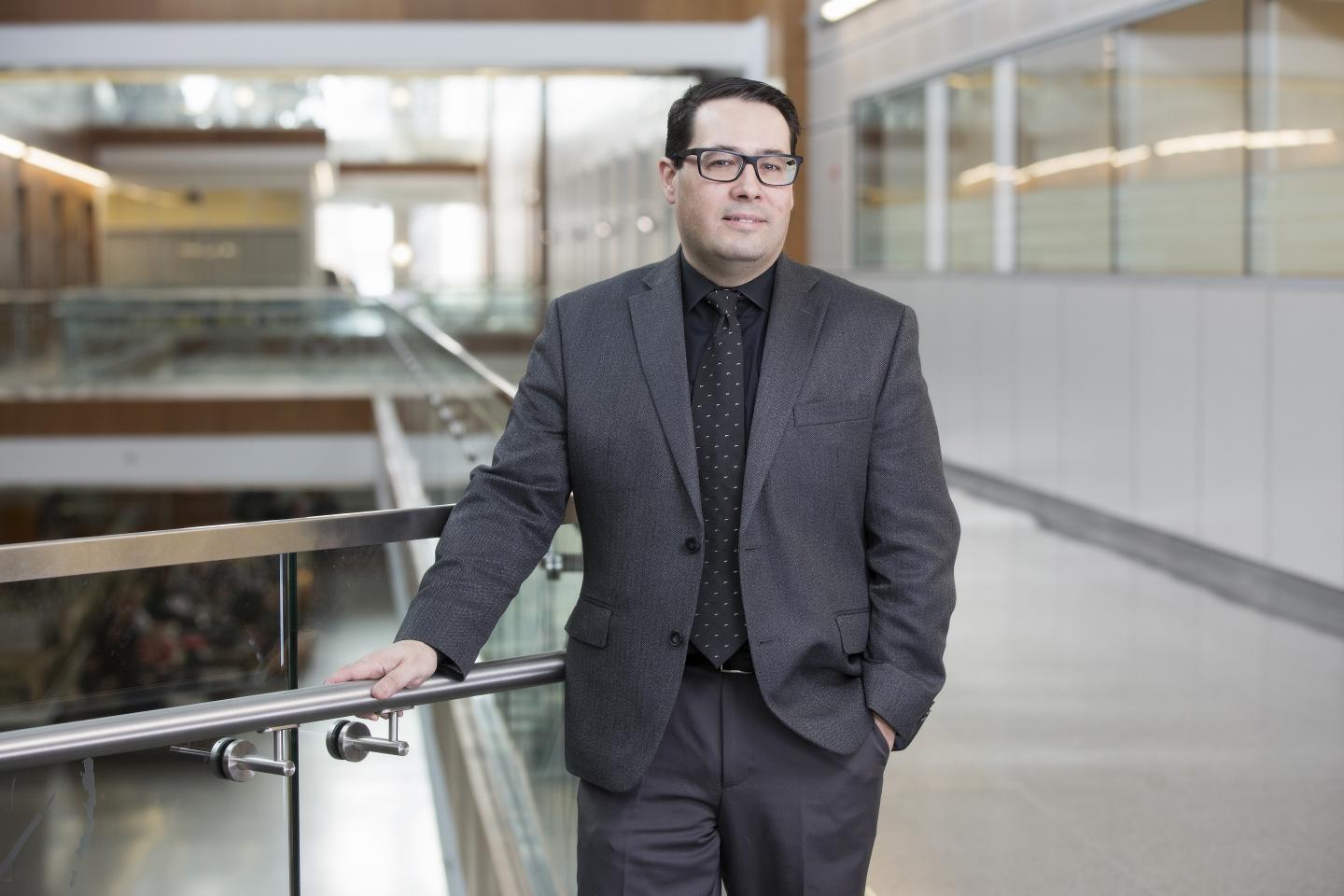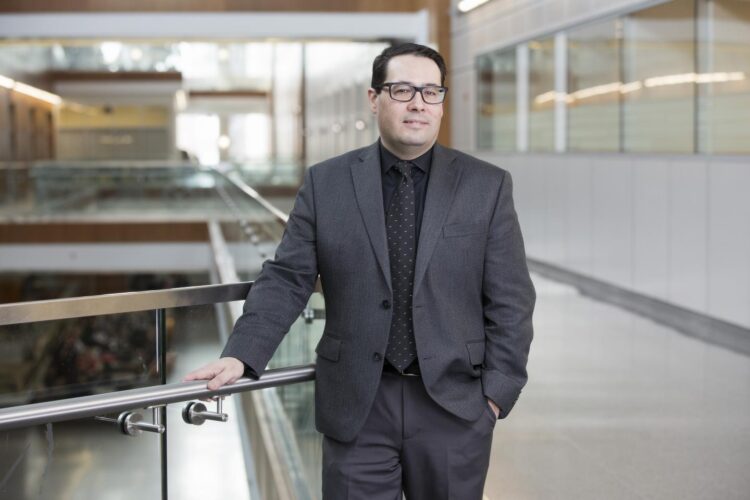
Credit: University of Saskatchewan/David Stobbe
University of Saskatchewan (USask) researchers are part of two COVID-19-related projects awarded major federal funding today–one to develop a unique saliva-based test for COVID-19 detection and the other to track COVID-19 incidence rates among Canadian dentists.
The Canadian Institutes of Health Research (CIHR) will invest $1.2 million in the two projects, led by University of Regina (U of R) and McGill University respectively, through the CIHR’s COVID-19 Rapid Response Program, of which at more than $550,000 will come to USask researchers at the USask College of Dentistry and the USask Vaccine and Infectious Disease Organization-International Vaccine Centre (VIDO-InterVac).
Unique saliva-based COVID-19 biomarker diagnostic test and prototype testing device
Dr. Walter Siqueira of the USask College of Dentistry will lead development of the new diagnostic test which detects SARS-CoV-2 peptides (proteins) in saliva, as part of a broader U of R-led project.
The test would be less invasive than current methods, more sensitive, and would take less than five minutes to produce results. As well, the new test can be done by people at home and can be used in remote locations that don’t have medical facilities.
Siqueira’s team, in collaboration with Dr. Jun Yang at Western University, will develop a prototype testing device that is about the size of cellphone. The device will be similar to devices used for pregnancy testing in that an indicator turns a certain color when the virus biomarker combines with SARS-CoV-2 antibodies, indicating the presence of the virus in the saliva.
“We expect that the accuracy of this test will be high because the peptide/proteins we are using is a marker for a specific SARS-CoV-2 antibody, whereas other tests often aren’t that specific,” said Siqueira. “As well, other saliva-based tests are based on RNA (which synthesizes proteins), but this test is based on proteins themselves, and since proteins last longer in the saliva than RNA, the virus is more detectable.”
He also anticipates that the test will be able to detect mild or asymptomatic COVID-19 cases, a shortfall of some existing tests.
Siqueira said he has secured partnerships with the Saskatchewan Health Authority and Royal University Hospital to acquire saliva samples for the research.
He anticipates the new test will be a low-cost alternative to other tests so that it can be available to the general population. The test could be available by March of 2021.
Siqueira leads the USask Salivary Proteomics Research Laboratory, one of only a few labs in the world focused on applied salivary research. Previously, Siqueira has had success in identifying a specific protein signature in saliva for the Zika virus and creating a detection method for Zika virus using saliva.
U of R researcher Dr. Mohan Babu leads the part of the study aimed at developing antiviral peptides to block the SARS-COV-2 virus from entering or replicating human cells. VIDO-InterVac researcher Darryl Falzarano is working on that part of the study.
Examining COVID-19 incidence rates among Canadian dentists
In a second awarded project, Dr. Siqueira will also work with McGill researchers Drs. Sreenath Madathil and Paul Allison to collect saliva samples from dentists across the country to determine the incidence rate of COVID-19 amongst dentists as they return to work.
“The close contact between dentists and patients, along with the use of aerosol-generating procedures, makes dental offices a potential high-risk environment for the COVID-19 transmission,” said Siqueira.
“Now that dental offices are beginning to reopen, they are implementing infection control, treatment protocols and other procedures but there is minimal scientific evidence to support these measures. More information is needed to ensure we have evidence-based infection control guidelines that protect both the patients and the dentists.”
Saliva samples will be collected from 220 dentists every four weeks for a period of one year to test for COVID-19, and questionnaires will also be distributed. The data collected will enable the team to form a clearer picture of the risk in dental offices, which personal protective equipment should be used, and which infection control measures should be kept in place to ensure continued patient and dentist safety.
###
Media Contact
Victoria Dinh
[email protected]





